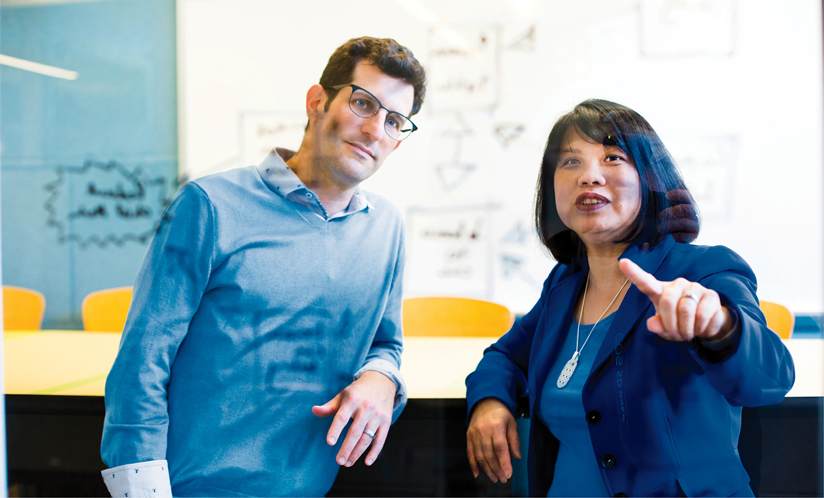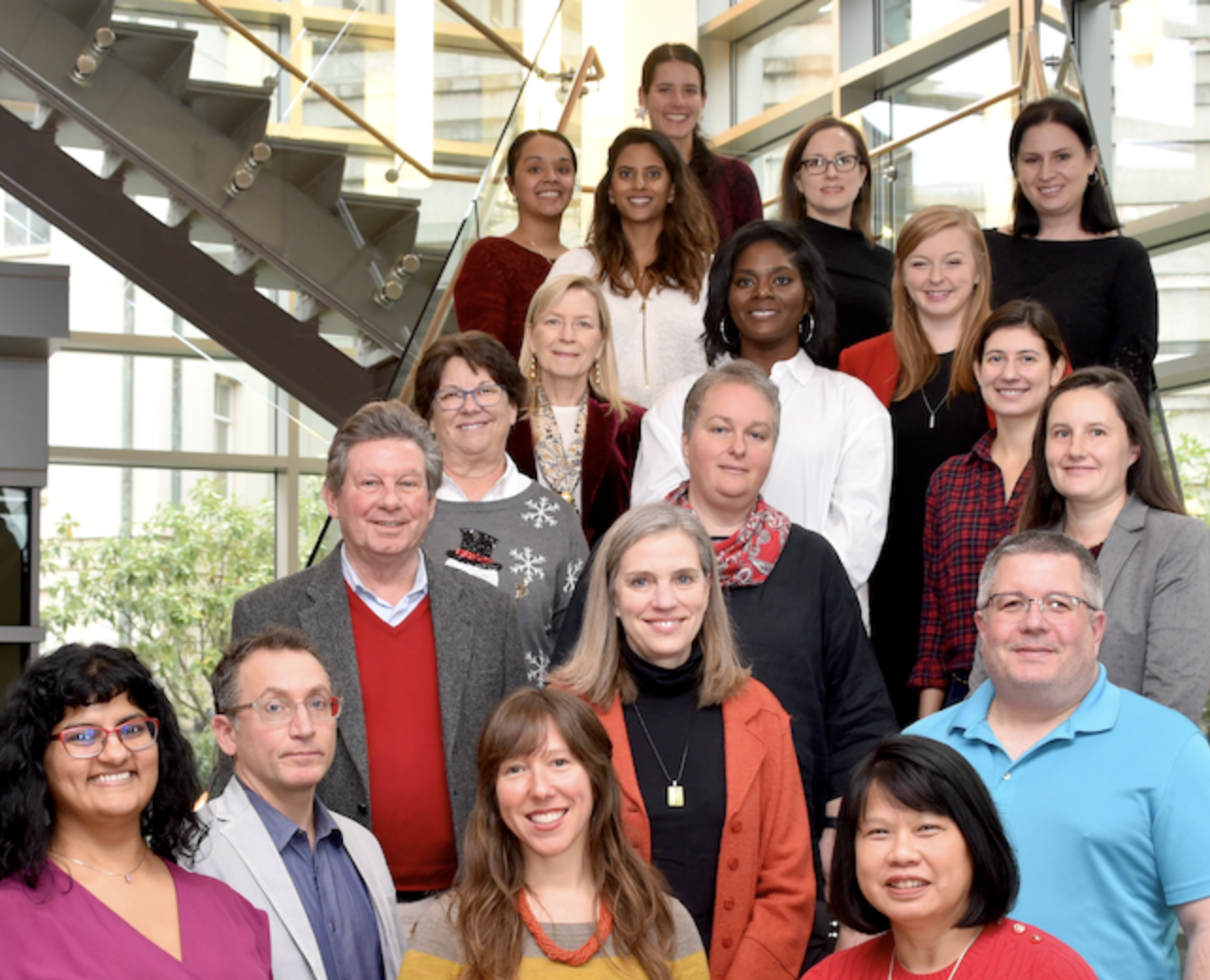Rollins Professor’s Community Engagement Expertise Impacts Emory’s Cancer Prevention and Research Initiatives

By Karina Antenucci
Community engagement is incredibly important when working in cancer prevention in order to create programs and for research to be relevant and sustainable in communities.
“As researchers, we value community voices and acceptability of our research. There is lower sustainability of interventions if we do not talk to community members and implementers. People are not wanting to embrace things that they are not consulted on,” says Cam Escoffery, Ph.D., MPH, CHES, professor and vice chair of research at the Department of Behavioral, Social, and Health Education Sciences at Rollins School of Public Health.
Escoffery is a member of the Cancer Prevention and Control research program and an advisory committee member of Office of Community Outreach and Engagement at Winship Cancer Institute of Emory University. Her body of work includes studying cancer screening and other preventative behaviors, such as the HPV vaccine, all the way through cancer survivorship. Her department at Rollins is one that conducts applied research in the community and many of its activities engage with community members.
As co-director of the Intervention Development, Dissemination, and Implementation core at Winship, Escoffery is a valued resource in regards to community engagement for cancer prevention research. Along with Dr. Michelle C. Kegler, she provides Winship investigators access to expertise in behavioral science research methods. “Community engagement is one of our strengths. We can bring our skillsets to other members of Winship to do it well if they haven’t done that type of work before such as through interviews with patients,” says Dr. Escoffery.
“There’s a new term, ‘co-creation,’ which is collaboration throughout the research process to help us design programs and research that is relevant and meaningful to community stakeholders. Participant voices are very important. That engagement at the beginning of research to learn important factors to include or in evaluation surveys after the fact is important to achieve community voices being heard,” Escoffery says.
A national-scale, National Cancer Institute-funded project Escoffery is currently focused on at Winship is rolling out SurvivorLink. This web-based, educational platform links to personal health records and aims to help pediatric cancer survivors and their caregivers maintain their or their child’s follow-up cancer care. Originally developed by Children’s Healthcare of Atlanta, which reaches 90-95% of the pediatric cancer population in Georgia, Principal Investigators Dr. Ann Mertens and Escoffery are working on taking the program to scale and offering it in English and Spanish to reach Latinx community members. Currently, 12 pediatric cancer clinics in different regions around the U.S. have agreed to engage in the program that recruits parents and pediatric cancer survivors. Findings from this study will increase the knowledge around adoption of evidence-based interventions for survivorship care nationally and can inform future dissemination of the SurvivorLink intervention.
“Cancer survivors can experience ‘late effects.’ They may have to have lung and heart scans or monitor reproductive and fertility issues later in life due to their cancer treatment. We are trying to mitigate and reduce consequences by encouraging them to come back so providers can provide ongoing follow-up care,” Escoffery says.
Another current community project Escoffery has been working on since October 2019 is a CDC-funded study in southwest Georgia that focuses on trying to understand the barriers to uptake attitudes around the HPV vaccine (the vaccine for cervical cancer) and the cancer itself. Escoffery’s team is conducting interviews with parents who have and haven’t vaccinated their child, adolescents, young adults in the 18 to 29-year-old range, and healthcare providers (from public health, clinical systems, and college health services).
“We are learning a lot about different perspectives. The HPV vaccination is one of the only cancer cures we have. This is the first phase of the study where we are learning about the barriers to the vaccination,” explains Escoffery. “The reason we want to focus in rural areas is because nationally and in Georgia, rural areas typically have less healthcare access, have structural barriers such as transportation, and a lack of knowledge [due to] living in dispersed communities. Many times, voices of underserved communities and populations of color have not been heard and participatory methods allow us to share their attitudes and behaviors that could affect their health and glean strategies that would work for them.”
 |
Additionally, Escoffery is an associate director of Emory Prevention Research Center (EPRC), a CDC-funded initiative, that conducts community research and trainings on high-priority topics such as obesity and evidence-based approaches to chronic disease prevention. Obesity and a high-fat dietare risk factors for several cancers including breast cancer (No. 1 among women), prostate, and colorectal (No. 2 and 3 among women and men), in addition to heart disease and other chronic diseases.
The EPRC has worked with regional cancer coalitions, such as Horizons Community Solutions and 2-1-1 call centers in southwest Georgia, on implementing one of EPRC’s obesity-prevention programs throughout the state, which is considered part of the “stroke belt,” where a lot of people are overweight and obese and prone to heart disease.
“Public health is population health and population health is about people. We need to listen to our community members to amplify their voices, concerns, and preferences to affect change to create more healthy and equitable communities,” says Escoffery.


